Welcome back to our continuing coverage of HBO’s new television series, The Last of Us, starring Pedro Pascal and Bella Ramsey.
With eight episodes in the bag, we enter the season one finale hopeful and starry-eyed – only to be basically as disappointed in the ending as we were in the underlying source material. The Last of Us finale improved marginally on the game’s storyline, while still feeling narratively thin and definitely too rushed.
So let’s get into our summary and analysis, and look back on the season as a whole!
SPOILERS for the entirely of The Last of Us Season 1 and the first video game
Episode 9: “Look for the Light” Summary
Our episode opens with a woman, later identified as Ana (Ashley Johnson, the voice of Ellie in the games!) running through the woods. She is heavily pregnant and appears to be in active labor. Ana reaches an abandoned farmhouse and calls out for help, but no one answers. Ana barricades herself in a bathroom. While she is in labor, a zombie breaks into the room and bites her just as the baby is born. Ana stabs the zombie, realizes she’s bit, and quickly cuts the umbilical cord. She holds the baby up and names her Ellie.
This is an addition to the source material. In the games, we’re never given an explanation as to why Ellie is immune. All we know about Ellie’s mother is that she was friends with Marlene, and that Marlene promised Ana that she would keep Ellie safe. This explanation fits in well with that cannon. I also like it because it’s such a rare occurrence – being bitten at the moment of birth, with just enough exposure through an umbilical cord to develop an immunity, but not be infected – that it now makes sense that Ellie is the only immune person around. Her confirmed uniqueness certainly ups the stakes for what Joel does later, since Ellie truly is the link to the cure.
Marlene arrives at the farmhouse and discovers Ana with the baby. Ana insists that she cut the cord before she was infected. Marlene takes Ellie, and a special knife Ana gives over, and executes Ana at her own request.
Now, this is part of the episode where the truncated nature of the finale is really apparent. Other than this scene – and one or two quick lines in episode one – we get nothing about Ana’s and Marlene’s relationship. We had plenty of time this episode and in previous episodes to build this. It would have been more emotionally effective if we saw them being lifelong best friends. Just having the characters say it on screen, and demanding that the viewer believe it right away, is not the best narrative choice.
After the intro, we cut to Ellie and Joel on their way to the hospital. Ellie is extra quiet while Joel tries to talk to her about their future plans together. Joel offers to teach her how to play guitar. I’m sure nothing bad will happen to this lovely pair!
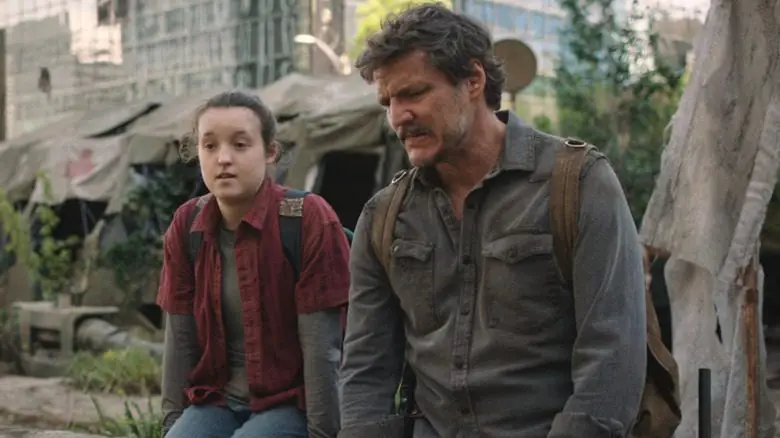
Again, here, The Last of Us writers really shine with the humorous, mildly sarcastic interpersonal conversations between Joel and Ellie. Pedro Pascal and Bella Ramsey both deliver their lines perfectly. Finally, I buy that these two have developed a deep, close bond over the last year that they traveled together. I just wish I’d had this for more than 43 minutes /shrug.
As Joel and Ellie make their way through a building, Ellie gets distracted and runs off – and every gamer in the audience simultaneously said, “GIRAFFES!!!” Joel races after her, and it turns out the building looks onto a large field with a herd of giraffes. Joel and Ellie feed the giraffes and marvel at the view together. We’ll return to this scene in our analysis, but it was a nice, happy scene. I sure hope nothing bad happens!
At this point Joel tells Ellie that she can back out. They don’t need to go all the way to the hospital, they can just go back to Jackson and pretend she’s his daughter – I mean, pretend she’s not immune. Ellie says, “But Joel, it’s the finale and we only have thirty minutes left, we gotta go!” And so they continue on.
This following sequence is really, really well done, and is probably one of my favorite moments in the season. Joel and Ellie walk through an area full of tents and dilapidated medical equipment. Joel explains that crisis areas like this popped up in the days right after the outbreak, and that he ended up in one. Ellie asks why. Joel points to the scar on his forehead (or Pedro points to the smudge of lipstick on his forehead, you decide!). Ellie remembers that Joel previously said he got that when someone shot at him and missed – and Joel reveals he actually shot at himself, and missed.
The two stop and sit together. Joel explains that he tried to kill himself the day after Sarah died, but when he pulled the trigger he flinched. Ellie says, “I guess time heals all wounds.” Joel looks at her and says, “It wasn’t time that did it.” AND MY LITTLE HEART BREAKS

Pascal delivers this line absolutely, unequivocally, perfectly. Ramsey’s expression in response is excellent. The chemistry between these characters has finally built to this moment, this big emotional reveal, and it was lovely to see. This is a character moment, for reference, that isn’t advancing the plot but is still moving the narrative because it permanently changes the characters, specifically their relationship to each other.
I will pause to complain, however, about the existence of this scar. When it was first brought up I was annoyed because I didn’t think it’d ever been mentioned before. Astute viewers of my TikTok livestreams (@beelock) informed me that I was wrong – and I was! This scar, and the story about someone missing a shot at Joel, was in episode 3. Now I don’t always pick up on everything, I am not a perfect viewer; however, I am a person who watches the episodes multiple times and writes articles about them. If the existence of this scar didn’t register with me, I would argue it wasn’t explicated enough on our screens. Honestly I’m less annoyed by them not talking about it much than I am by it looking like a smudge of lipstick, and not a scar at all.
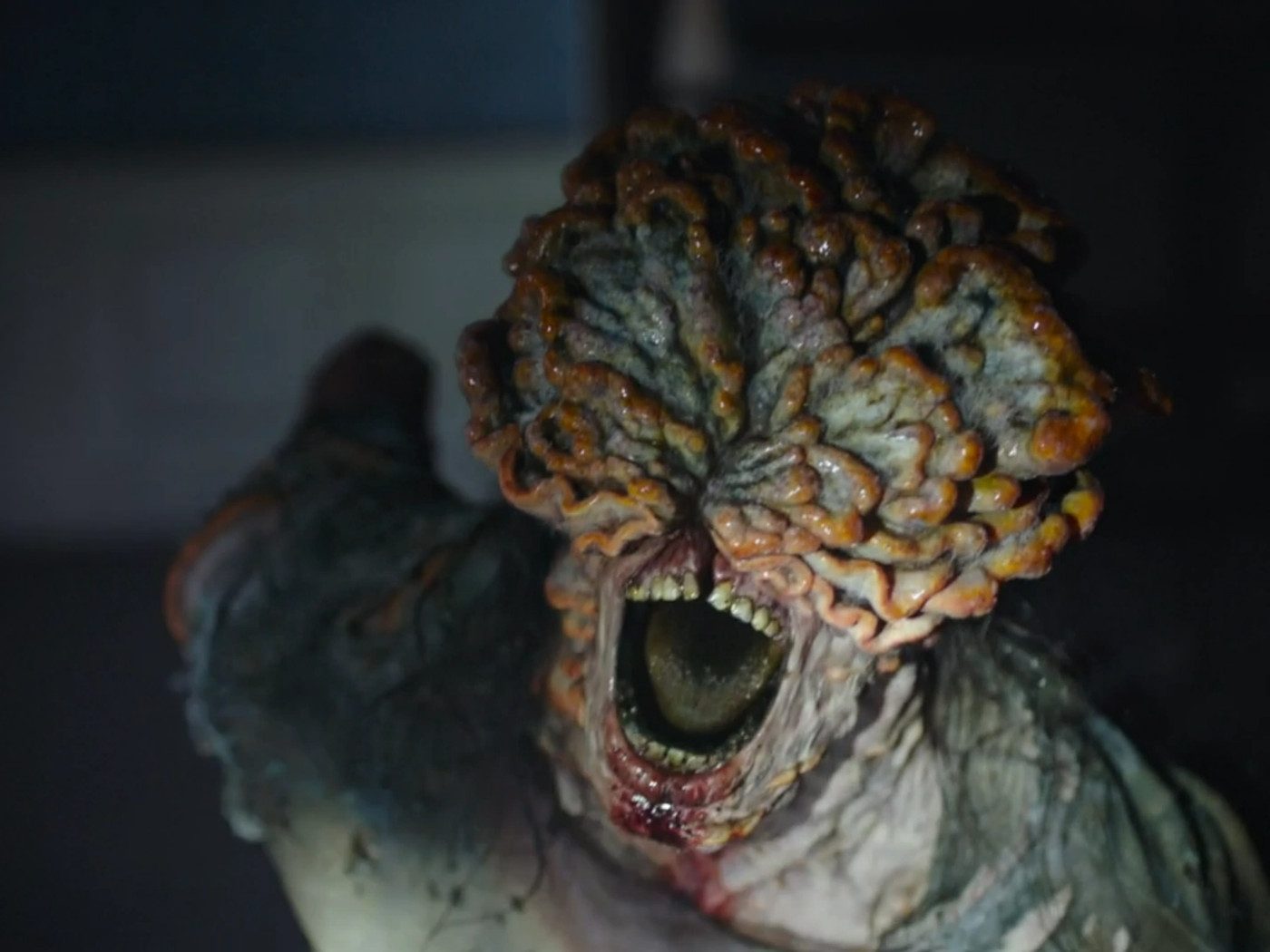
Shortly thereafter Ellie and Joel are smoke bombed by the Fireflies. Joel wakes up in their hospital with Marlene in the room. Marlene informs him that Ellie is being prepped for surgery. Apparently, in the time Joel was unconscious, the doctors tested Ellie, discovered that her body produces messenger cells that confuse incoming cordyceps into thinking the body is already cordyceps, and therefore fends off infection. The doctors also decided that they can definitely reverse-engineer a cure for all of humanity if they remove the growth inside Ellie. Joel realizes this means Ellie will die.
A moment to analyze this, if you will – this detailed explanation is an expansion on the game cannon. In the game, Marlene communicates the same basic concept, but doesn’t explain why the doctors think they can successfully make a cure. Including the fun science-fiction lines about messenger cells definitely makes it more likely that the Fireflies can actually make a cure. One of my big criticisms of the games is that the Fireflies are never established as a group that can really cure humanity. This dialogue goes a long way to closing that plot hole – and also tells us that Neil Druckman is very much aware of that plot hole.
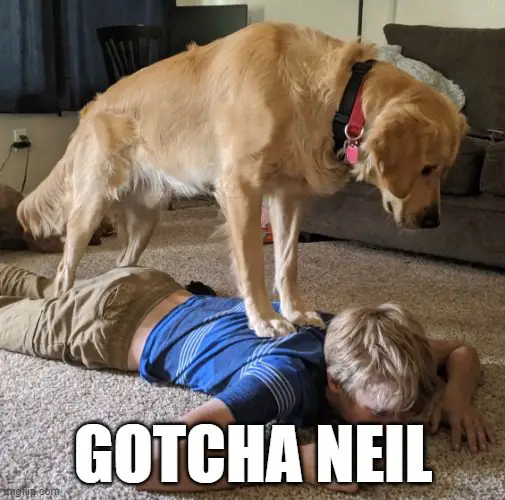
However, at the same time, this explanation is inadequate. It took me maybe 45 seconds of thought to question how the doctors detected the “messengers cells” and figured out how they worked while still also needing to remove the growth from Ellie. Surely if they had cells, they just got them from a sample taken from her; and if they have the active cells, then they can replicate them in some other fashion. It doesn’t even line up that removing the cordyceps from her will be useful because how would the cordyceps make more of these cells outside her body? Would the growth even survive the extraction? Unfortunately the science fiction explanation somewhat closed the plothole, but didn’t entirely.
What we really needed was some Star Trek nonsense words – some dilithium crystals that aren’t aligned to the warp core, so we have to use the deflector array to channel a particle beam through them to fix the alignment. You know, a sentence of dialogue that sounds like science, but is such total rubbish it can’t possibly mean anything in real life. That way we can’t be distracted by criticizing it.

Anyway, Firefly soldiers begin to escort Joel out of the building. Joel decides to go sicko mode, and kills the two guards. He obtains the final weapon (the assault rifle, yay!) and tears his way through the hospital to get to Ellie. Personally, I relied on bricks and bottles for this level, but he must’ve been on Normal because he kept finding ammo drops from the bodies.
I both like and dislike this sequence. I thought the music was excellent, and to a point the violence was effective. The way it was physically shot by the camera also worked – like I knew where things were, what direction he was going in, that sort of thing. But I got a little lost on a few points.
One, the scene devolves into this very artsy sort of montage of Joel murdering, stone-faced, with piles of bodies of randos all over the place. The sound of the fighting gets muffled to the crescendoing music by the end. Unfortunately, this effect made me feel disconnected from Pedro Pascal. Indeed, Pedro wasn’t showing any emotion – which I’m sure was the direction. But that didn’t work for me. And it doesn’t work story-wise, either. Joel was stone-cold in the beginning of the story, but the only time he now can feel emotion is in relation to Ellie. This whole sequence would have been better if we’d seen Joel’s fear, his anxiety, and his rage on his face. Instead of methodically moving through the halls, Joel should have been rushing like mad to get to Ellie, panicking that he wouldn’t reach her in time. I’m sure the reason they didn’t think about that is that Joel is a man, so stone-cold was the default emotion.
Two, in a similar vein, who the eff was this character??? We’ve spent an entire season establishing Joel as a regular guy with a gun. He’s clumsy, he can’t hear, he gets attacked and stabbed and lost, he has panic attacks – did he just use all of his supplements and upgrade right now for the final level? Our boy didn’t get a single bullet in him the whole time! I think paired with the stone-cold nature of his killing, this invincible status did not work. It would have worked, imo, if Joel had been truly rampaging and raging through the hospital – if Joel had a panic attack, like he did in episode six, but this time instead he acted out that panic as violence, then I would buy his indestructible status. But not this way.
Three, the scene is too short. Joel begins his rampage at about 31:00, and gets to Ellie at 35:00. Four minutes does not satisfy this story’s need for an ultimate climax. Especially when half that scene is done in an artsy, crescendoing music fashion, the length of the scene really matters. Like the season as a whole, this was too short.
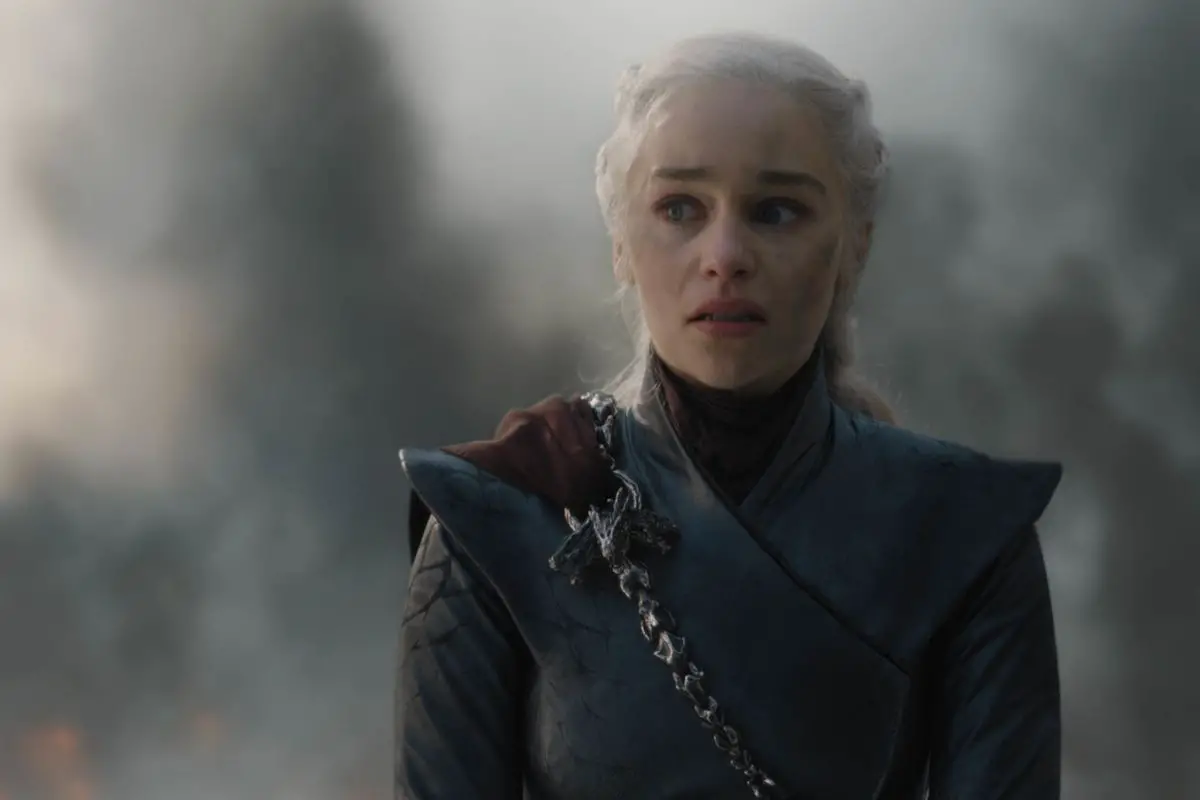
After Joel’s brief sicko mode, he saves Ellie from the hospital room. He shoots the doctor (gasp!) but not the nurses (why?), and carries Ellie out through the parking garage where they are confronted by Marlene. She begs him to leave Ellie for the good of humanity. Joel shoots her in the stomach.
The scene then cuts to Joel and Ellie in the car, where Joel tells Ellie there are plenty of immune people and that the Fireflies couldn’t help. At this time we’re given shots of Joel killing Marlene in the parking garage. The show adds an additional detail – Joel says raiders came to the hospital while Ellie was under anesthesia, and he barely got her out of there alive. This is a good addition that will help explain why Ellie may have believed Joel for a time.
The final scene of the show is nearly frame-for-frame from the game. They arrive outside Jackson, and Ellie asks Joel to promise that everything he said about the Fireflies is true. He says yes, and the screen cuts to black.
YIKES!
Analysis: The Last of Us is a Good Show, Not a Great Show
As we finish this season, it’s clear that The Last of Us is a solidly good show – but it’s not one of the great shows. This isn’t surprising to me since the same is true of the games. The show has plenty of positives, and more positives than negatives for sure. But the negatives are disappointing because they were easily avoidable with better writing, forethought, and maybe employing a few more brain cells – again, just like the games.
Pacing Predictably an Issue
Every gamer in existence shuddered at the idea of including the entire first game in one nine-episode season. Especially as the episode lengths got shorter and shorter, we worried that there wouldn’t be enough time to adequately tell the story. Ultimately, we were wrong – that was enough time to *adequately* tell the story.
However, it wasn’t enough time to tell a great story, or an excellent or amazing story. The biggest criticism I have for this show is the pacing and structural decisions they made that, frankly, I just do not understand.
Overall, why was this season nine episodes? Why not the full ten? The total run-time of the season, adding all the episodes together, was 522 minutes – that would be ten 52-minute episodes, approximately. So we got just under 9 hours of television total to tell the story of a 15- to 20-hour gameplay experience. That’s not too bad for an adaptation, but it felt short. I do think a full ten hours of television could have gotten us a great show.
The layout of the episodes, too, was strange. One thing I complained about in my analysis was that the relationship between Joel and Ellie didn’t feel developed until late-season, like episode six and on. A big part of this problem was the juggernaut that was episode 3 – we spent about 50 minutes of episode 3 (an episode that was 75 minutes) with two characters who (1) we never see again and (2) our main character, Ellie, never even meets. This interjection interrupted the development of Joel’s and Ellie’s relationship at a crucial point in the season, and made the transition into episode four and five awkward. By episode five, the script is trying to tell me that Joel cares for Ellie like a daughter – but we’ve really only have them on-screen together for less than three hours, give or take. This is exactly why timing and pacing are so important.
Overall feedback from lolling around the internet reveals that most people do think the season, and many of the episodes, were too short. There’s especially complaints about how quick the finale went. There is no reason that a finale episode should be the shortest episode of the season. The shortness almost makes it feel like they just ran outta steam and quickly decided to end the story.
Other inter- and intra-episode plot decisions manipulated the pace in a bad way. Fifty minutes with Bill and Frank, two whole episodes with Sam and Henry, but only 51 minutes with David? The story’s darkest villain? And we bothered to bring Ellie’s voice actor, Ashley Johnson, onto the show, but only for one pre-credits scene? Things did not move at a consistent pace, nor at a satisfying one.
What’s interesting about this is that the source material does not have this issue. The first game is well-paced and relatively well-structured. It’s a simple A to B to C kinda story, so it’s a little hard to screw that up. How they managed to lose the good pace when adapting it to TV, I have no idea. I’m especially concerned about them adapting the second game, which notoriously has both pacing and structure issues built into it!
Deep as a Puddle
The Last of Us contains a number of things that fans are (for some reason) very emotionally attached to, though the story doesn’t share those feelings. And it’s unfortunate because the chance for symbolism and/or metaphor is there, it just isn’t actually executed on screen.
For example, what’s with the giraffes, guys? I know, I know, everyone loves the giraffe scene. It’s adorable, it’s cool, it’s unexpected in your zombie apocalypse story. That’s fine and dandy. You can have a scene on screen just because it looks cool and takes advantage of the visual medium. My eyes liking it is sometimes enough to justify filming it.
But the show and the game both treat this scene with attention that feels unjustified, as if it has more meaning than the writing gives it. I’ve seen hot takes on the internet that the giraffes represent Ellie’s fleeting innocence, or some such nonsense. That is fairly waived away because giraffes don’t represent innocence in any way, and the script certainly doesn’t give us that at all. I’ve also heard that maybe it’s a sign that other things survived the apocalypse, that “nature will find a way” if you will. That’s a little more digestible, but still unrelated to our main characters and their story. There’s no indication that animals suffer from cordyceps, so it’s not like the giraffes were ever in danger anyway.
When I first encountered this scene in the game, I thought, oh! Giraffes must’ve been Sarah’s favorite animal. That would be really significant to Joel if, while he’s finally accepting his love for Ellie, he sees his dead daughter’s favorite creature. Giraffes are rare enough to encounter that he could’ve easily seen that as some kind of sign that loving Ellie is okay, and/or the right thing to do. But of course that didn’t happen in the game or the show.
In the show, when Joel is in the hospital, there is a moment he’s walking through pediatrics and passes by several paintings of animals. He passes an elephant, a bird, a monkey – and I’m like omg!! He’s gonna see a giraffe painting!! And he’s gonna have a reaction and it’ll be significant!! But then of course that didn’t happen.
My point is that I, but a lowly complainer on the internet, immediately thought of two ways the giraffe scene could have been made relevant to the viewer, so that it could have meaning beyond just being neat. If I can think of it, certainly the professional adult writers at HBO should be able to think of it, too. It’s upsetting especially because missed opportunities for meaning like this exist in abundance in this show.
Joel’s broken watch is another offender in this category. This show was so freakin close to having a great theme about time stopping for Joel. Hell, they even had the great line this episode that time wasn’t what healed his wounds. I mean for the love of the seven Neil, the theme was so blatantly available in this story it nearly came onto the page itself!
Another more minor offender is Ellie’s knife. We learned in this episode that it was her mother’s knife. Yay! Okay! And that’s significant because? Because??
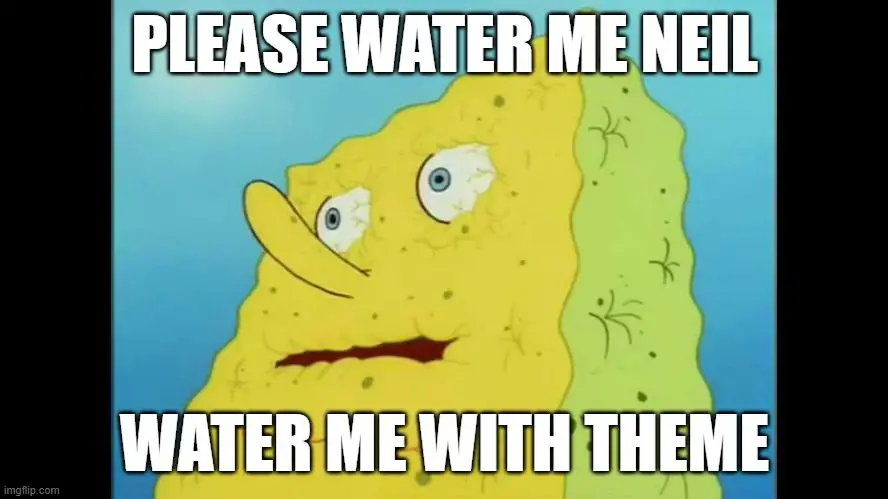
Audiences are smarter than this shit, frankly. It’s not sufficient to just include things because they’re cool. If you’re gonna put something in your dialogue – or on your screen – it should be there for a reason. The inclusion of these details without deeper meanings actually hurts the entire story by making it shallow.
Chekhov’s Ellie
Personally, I am a big proponent of the concept of Chekhov’s Gun in fiction – that you should only include details that matter to the story. When even seemingly innocuous details end up having relevance, it proves to the reader that you planned ahead, and makes the story more complex. A great example of this is in George R.R. Martin’s A Song of Ice and Fire, where literally hundreds of side characters are named throughout the novels and almost always end up playing some role in the world’s narrative. A television show that also does this well is The Haunting of Hill House.
Unfortunately, The Last of Us writers did not get the memo. There are tons of details and plots that go no where in this narrative. For example, in episode two Ellie tells us that she can’t swim. That seems important to survival! We know from the games it is. But it never comes up again, because our characters are never faced with the problem of needing to swim. Similarly, the cool science fiction fact that dogs can smell infected is seeded in episode one and briefly employed in episode six – but only to have the dog not hit on Ellie as infected. What’s the point of introducing that kind of mechanic if it doesn’t get our characters into trouble? That’s just lazy.
My two favorite additions to the show cannon were likewise abandoned. In episode two, we learn that the infected are connected through the fungus. That’s awesome! What a great mechanic! It’s used within the same episode, and then never used again. Why?? And finally, Joel’s panic attacks in episode six are seemingly resolved by – by what? He never has another panic attack? When he learns in episode nine that Ellie is in literal mortal peril, that’s not a time to have a panic attack? I loved how that characterized Joel, but it was entirely confined to episode six.
The problem with abandoning details like this is that it thins your story and undermines your climax. So in a narrative, characters should be gaining skills overtime that they (ideally) employ to succeed during the climax of the story. This is very well done in the game, where Joel literally upgrades his weapons and character, and uses all of those upgrades in the final St. Mary’s level. World-building in a science fiction narrative should follow a similar course. As you add fictional details to your world, they should be employed more and more as the story progresses. A good example of this is Supernatural where, by even season five, the audience has been trained to understand the different available tactics to fight demons and monsters. Developing the world-building at the same time you’re developing your characters gives the writer the ability to throw even greater challenges at the characters for them to overcome.
Ellie being truly threatened by water or by dogs would have introduced an additional element of challenge and fear to this story. Likewise, our characters could have learned how to navigate around dangerous alarm fungus, and Joel should have learned on screen how to work through his panic attacks. Literally all of these elements could have been employed in the finale at St. Mary’s – but none of them were. And that’s mighty unfortunate.
There’s No Gameplay When You’re Watching a Show
In the Inside the Episode interview for episode five, Craig Mazin said, “There’s no gameplay when you’re watching a show.” Now, he was talking specifically about the scene where the zombie horde emerges from underground, and how there aren’t a lot of monsters in The Last of Us television show because “there’s no gameplay when you’re watching a show.” But that line stuck with me because I think it is an underlying problem of this entire season. Basically what Mazin was saying here was that you can’t include gameplay in your show – in other words, you can’t watch gameplay.
This is silly because people – especially their target audience – love watching gameplay! Indeed, when you’re watching gameplay, you’re basically watching a story with a lot of action. On TV we just call that an action show or movie! Those exist and they do extremely well! It’s a genre, even.
The distinct lack of action sequences absolutely hurt this narrative. The excision of David’s defense of Ellie from the horde is unforgivable, and the lackluster finale climax really injured the entire season. Similar to that, the overall lack of zombies in our zombie apocalypse show nearly undermines the entire thing. The show quality is so hurt by this, you could even say it was hit over the head repeatedly with a golf club.
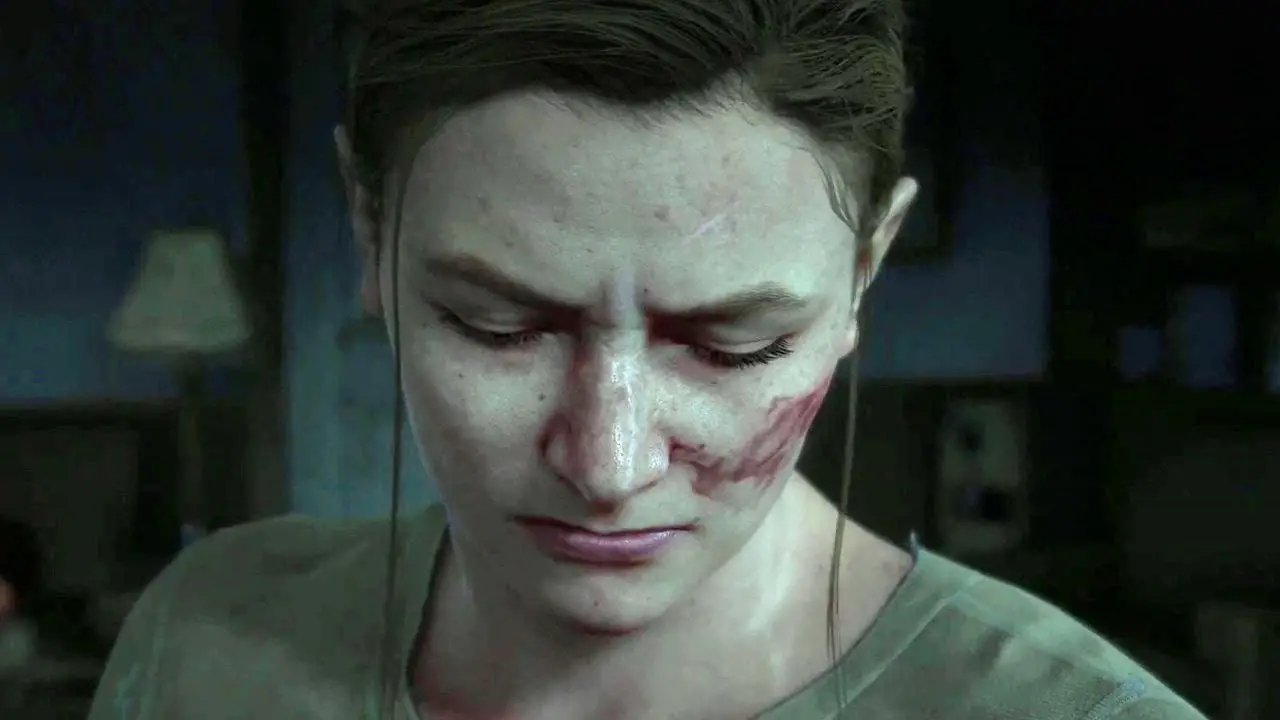
Unfortunately, The Last of Us writers weren’t good enough at the dramatic, emotional moments to distract from the lack of action. Their strength was consistently humorous interpersonal interactions, but very few of the emotional scenes had the same strength. When you strip away the action and zombies, this writing issue becomes much more prevalent.
And truly, how is it that we only saw sneaking around clickers in one episode? And only one bloater? And that bloater was in episode five of nine??? What even IS pacing.
Final Thoughts and Feelings
Going into The Last of Us, I expected total disaster but hoped for success – and what we got was a perfectly above-average viewing experience that was often disappointing. It is now time to do math and tally up my totally subjective and arbitrary episode scores to see what we got.
For the finale, I give it a 7. It was good, just too short, and lacking in emotional depth. I also previously reserved on episode three – now, seeing that it was indeed just filler, I give that a 5. Good episode of TV, bad episode of The Last of Us. So in total we have:
6.5 + 7.25 + 5 + 7 + 7 +8 + 8 + 6 + 7 = 61.75 divided by 9 is…
About a 6.87 overall for the season. That tracks with my impressions of the show and of the games – perfectly above average, good to watch, but not a great or impressive piece of media.
If you’ve read this far, thank you for following along on my analysis journey! If you would like to talk about this analysis, join our Discord linked below. I’m on Discord as @AScreamOfIceAndFire. If you would like even more analysis of this season, check out the Fandomentalist Podcast where Bo and I dissect the season, or my podcast Gaze where we analyze the show from an LGBTQ+ perspective, or my podcast History in Reverse where we analyze the show from a science fiction perspective.
As always, you can follow me on TikTok @beelock or on instagram @_beelock_ for more games, analysis, and cosplays!
Thank you all! Endure and Survive!
Images Courtesy of HBO
Have strong thoughts about this piece you need to share? Or maybe there’s something else on your mind you’re wanting to talk about with fellow Fandomentals? Head on over to our Community server to join in the conversation!

